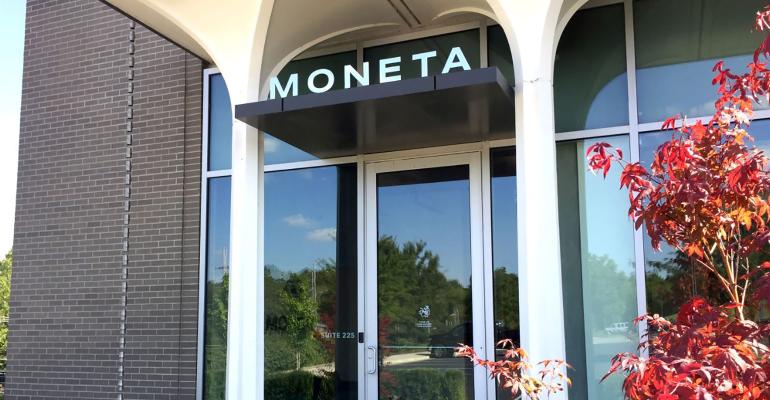Moneta Group Investment Advisors announced the launch of a new client portal and mobile app this week. Developed in-house, the technology allows Moneta’s clients, more than 6,000, to interact securely with their investments and advisors—and, eventually, each other—from their smartphones and browsers.
St. Louis–based Moneta was established more than 150 years ago, has gone through multiple iterations and now manages close to $33 billion in client assets across 26 teams in five states. The firm, which is 100% owned by 52 partners, has only recently begun pursuing a deliberate inorganic growth strategy after spending the past five years building out a team and platform to support it.
The new portal integrates with Moneta’s existing tech stack, which consists of primarily third-party products built around a MuleSoft-enabled plug-and-play integration tool for disparate applications and data sets. The client portal is one of the only technologies in the stack the firm felt needed to be developed proprietarily.
“We looked at Orion and eMoney and Salesforce and felt like none of those client portals were really what we wanted to deliver to our clients,” said Moneta COO Keith Bowles, so the firm hired an undisclosed software development company to build the portal to its specifications. "It represented a substantial financial investment as well as thousands of hours between our internal team and the developers."
Leveraging in-house data as well as information available through Salesforce and other external partnerships, the Moneta portal uses what the firm's executives say is a kind of "machine learning" to anticipate client life events and push relevant content to them at the right time.
"It's about lifestyle and life stage and the pain points or celebrations that [clients] are potentially going through,” Bowles said, citing college graduation as an example. “We can send out our off-to-college guide to those parents and it goes to their mobile app and then they can send that on to family and friends.”
Moneta COO Keith Bowles
The release is just the first of planned iterations of the client engagement platform, according to Bowles, which will eventually incorporate a social feature dubbed “Moneta Communities” that will let clients connect with each other in a kind of exclusive social media space to share lessons, insights or seek advice around financial issues from their peers.
“What we want to do is create a community in which business owners or people preparing for retirement can network with other successful families and share their ideas and what has transpired in their lives,” Bowles explained. “So, we're making this mobile app more of a social mobile app."
Other portal features, which have built-in SEC compliance where possible, include access to financials, instant messaging, online scheduling for advisor meetings, DocuSign signatures, a secure document vault and a customizable, multimedium content feed for educational material.
Moneta expects to use the technology to reach new generations of digital-first clients, but will not be making the portal available outside of the Moneta network. The effort appears to be focused primarily on retaining multigenerational relationships and pushing educational content that can then be shared externally.
“It’s estimated that nearly $30 trillion will be passed down from the baby boomers to succeeding generations,” said Bowles. “We’re seeing this wealth transfer that's coming down to them and educating them on that wealth transfer and how to prepare for that wealth.”
Education has long been a component of the Moneta ecosystem, Bowles said, but has historically focused on offering internal career education and a library of digital resources to advisors and team members through a learning management system called Cornerstone.
“You wanna be an advisor? There's a whole advisor track. We have a two-year partner-in-training program where you're mentored by four different partners and get to see the way four different teams are run,” Bowles said, explaining that the program’s success inspired the firm to expand the LMS platform to bring wealth education to clients through the portal and mobile app.
“We have just started to build out all our wealth education—basic investing, charitable and foundation, next-generation education for off-to-college and buying your first home,” Bowles said. “We're building all of these educational pieces for our clients and our clients' children based on life events.”
As the platform continues to evolve, Bowles said Moneta is ready to begin accelerating M&A activity that has been picking up momentum since the firm opened its Denver location in 2019 and acquired a local practice the same year. Following that first move, Moneta’s assets have grown by 39% and three more locations have been added in the Kansas City, Boston and Chicago metro areas.
In 2021, the firm launched a trust company in response to client need for trust services, and the firm's desire to keep control of the client assets. It also makes the firm more appealing to potential acquisition targets.
“We took a different route than most firms,” Bowles said. “We said we need to be able to have a back office to support mergers and acquisitions and we spent the last five years doing that. Now that has come to fruition and scale and you're starting to see us aggressively expand.”
The goal is to recreate the community of 450 professionals built over more than a century in St. Louis, focusing first on areas where a presence has already been established. Currently Moneta is in talks with five firms—three potential mergers and two acquisitions, said Bowles, two of which are in cities outside of targeted areas.
“If there’s a like-minded firm that is a cultural fit for us and wanted to grow and remain independent, we would absolutely entertain those cities,” he said. “We’re looking for firms that want to remain independent. I think you hear this a lot from a lot of firms, but we are fiercely independent and have no desire to take private equity. We would love to be the only RIA that doesn’t.
“We think if we did take private equity,” he added, “that mobile app wouldn't have been created.”





